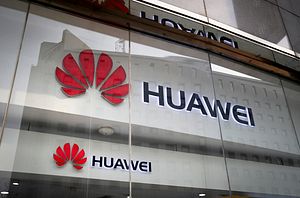The United States has been leading the charge against Huawei, a Chinese tech firm that not only has a popular smartphone brand but supplies internet and mobile technology around the world. Concerns about potential espionage, including hypothetical pre-installed “backdoors” allowing the Chinese state to access Huawei technology, linger, although no examples have ever been found and Huawei has always denied such allegations. Meanwhile, concerns about Huawei’s alleged theft of intellectual property and other shady business practices abound – including reportedly violating U.S. sanctions on Iran, a charge that got Huawei’s chief financial officer arrested in Canada in late 2018.
Based on these overlapping concerns, the U.S. government banned Huawei from being used in U.S. government systems or by U.S. government contractors. In May 2019, as trade talks between China and the United States collapsed (again), the Trump administration went a step further and placed Huawei on an “entity list” – effectively banning U.S. companies from doing business with the firm. That meant, in essence, that Huawei would have no access to U.S. technology. While not a proverbial “death blow,” it was a huge setback; Huawei itself estimated the blacklisting would cost the company at least $30 billion.
The U.S. action against Huawei is particularly important at this moment, as the world is currently poised to roll out fifth-generation cellular network technology, or 5G. Huawei is positioned as a major provider of this cutting-edge technology, which is expected to power a worldwide takeoff of the Internet of Things. The prospect of Chinese dominance over 5G seems to have been a wake-up call for the U.S. government, and became a focal point for the anti-Huawei campaign. The Trump administration has been working to convince other countries not to allow Huawei to build their 5G networks.
As we’ll see below, those efforts have had extremely mixed results. The debate over whether Huawei poses a security risk (and, if so, whether its low costs and competitive services outweigh those concerns) reaches very different conclusions in different Asian countries. Close U.S. partners like Singapore and South Korea are still very much keeping open the possibility of Huawei participating in their 5G rollouts. India has been so far unable to choose between its own security concerns and Huawei’s low costs, which are nearly irresistible for a developing country. And on the other end of the spectrum, Japan has a de facto ban in place while Australia outpaced even the United States by officially banning Huawei from its 5G network in 2018.
In this rest of this article, experts Pauline Reich, June Park, Aman Thakker, Motohiro Tsuchiya, and Danielle Cave explain how the Huawei debate has unfolded domestically in each of those countries, and what conclusions (if any) were reached.

































